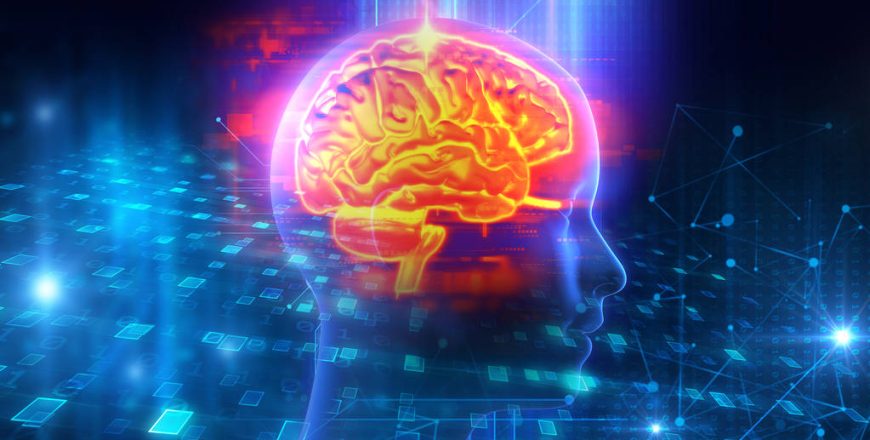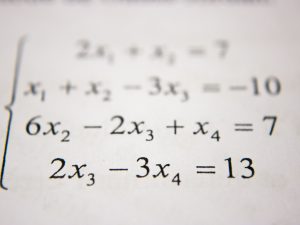
- Description
- Curriculum
- FAQ
- Reviews
Unit 1: History and Perspectives of Psychology
-
1Lesson 1: History and Perspectives of Psychology
- Study - Development of Psychology as a Science: Learn about the development of psychology from early philosophy to modern science.
- Explore - What Do You Know about Psychology? A Common Sense Test: Take a quick quiz to test your knowledge in the field of psychology.
- Discuss - Getting Acquainted: Introduce yourself to students and instructor. Share information about yourself, your school, and your interest in psychology
- Study - Modern Perspectives in Psychology: Learn about eight of the most common perspectives in modern psychology.
- Practice - Comprehension Check: Answer questions to assess your understanding of the history and perspectives of psychology.
- Study - Fields in Psychology: Learn about psychologists, psychiatrists, and counselors.
- Practice - Careers in Psychology: Match various psychology career titles to their activities.
- Practice - Identifying Perspectives in Psychology: Read and sort various scenarios into the corresponding psychological perspectives they represent.
- Quiz - Comprehension Check: Answer questions to assess your understanding of the history and perspectives of psychology.
-
2Lesson 2: Research Methods
- Study - Introduction to Psychological Research: Get some explanations regarding the world of psychological research.
- Explore - Why Learn about Psychological Research? An Introduction: Learn the key elements of how research should be conducted and designed so that you can better evaluate reports that may seem confusing.
- Study - Observational Studies: Learn about surveys and other types of information-gathering studies where the researcher does not exert control over the subjects.
- Study - Experiments: Learn about studies where the researcher exerts control over the subjects and observes how they react.
- Study - Hypothesis Testing: Learn how science answers important 'yes or no' questions.
- Explore - Hypothesis Testing in Current Research: Explore current research that uses hypothesis testing.
- Study - Correlational Research: Learn how to analyze the relationship between two variables such as TV watching and grades.
- Discuss - Evaluating Research Design and Ethics: Evaluate the research design and ethical standards of several research proposals.
- Practice - Evaluating Scientific Information: Using two different sources, one credible and one noncredible, evaluate the research design of each resource.
- Practice - Comprehension Check: See how much you know about basic research methods in psychology.
- Discuss - Should Animals Be Used in Research? Share views and explore the pros and cons of animal research and experimentation in psychology.
- Quiz - Comprehension Check: Answer questions to assess your understanding of research methods in psychology.
-
3Lesson 3: Basic Statistics
- Study - Basic Statistics: Learn basic measures of central tendency (averages) and variation (standard deviation).
- Study - The Normal Distribution z-Scores and Percentiles: Learn how the common 'bell curve' is used to determine probabilities and percentiles.
- Practice - Descriptive Statistics: Practice what you have learned about descriptive statistics. (Additional Practice)
- Practice - Basic Statistics: Calculate, organize and identify basic statistical data.
- Practice - Comprehension Check: Answer questions to assess your understanding of basic statistics.
- Quiz - Comprehension Check: Answer questions to assess your understanding of basic statistics.
-
4Lesson 4: History and Perspectives of Psychology Wrap-Up
- Review - History and Perspectives of Psychology: Review the material to prepare for the test.
- Review - Advanced Placement Essay Writing: Write Advanced Placement Essays
- Test (CS) - History and Perspectives of Psychology: Take a test to assess your understanding of the content.
- Test (TS) - History and Perspectives of Psychology: Take a test to assess your understanding of the content.
-
5Lesson 5: Diagnostic
- Diagnostic - History and Perspectives of Psychology: Test your understanding of the key concepts covered in this unit.
Unit 2: Perception and Consciousness
-
6Lesson 1: The Nervous and Endocrine Systems
- Study - Organization of the Nervous System: Learn about the main components of the human nervous system and how they work together.
- Study - A Tour of the Brain: Learn about the most complicated system in the known universe.
- Explore - Hemisphere Specialization: Learn more about brain function and hemisphere specialization.
- Study - Methods for Studying the Brain: Learn about the amazing tools that have given rise to exciting new discoveries about the brain.
- Practice - Neuron Activity: Label the structures of a neuron and complete the accompanying fill-in-the blank activity.
- Practice - Comprehension Check: Answer questions to assess your understanding of the nervous system, the neuron basic brain structures and their functions, and how scientists study the human brain.
- Study - The Endocrine System: Learn about the system of hormones and glands that affects emotions and important processes such as growth.
- Explore - Sheep Brain Dissection: Learn about brain structures and functions by exploring a sheep's brain which is so similar to our own.
- Practice - Brain Biology: Create a brain model that displays the various brain structures and outlines their various functions.
- Quiz - Comprehension Check: Answer questions to assess your understanding of the nervous and endocrine systems
-
7Lesson 2: Genetic Influences
- Study - Genetics and Genetic Diseases: Learn the basics of genes chromosomes and how they affect behavior.
- Study - Nature-Nurture and Twin Studies: Learn more how genes and the environment affect our behavior.
- Discuss - Nature or Nurture? Explore the topic of nature vs. nurture. Use concrete examples to support your view on how environmental or biological factors affect who and what we are.
- Quiz - Comprehension Check: Answer questions to assess your understanding of genetic influences.
-
8Lesson 3: Sensation and Perception
- Study - Sensation: Learn how our sense organs take in information from the environment.
- Study - Theories of Vision and Hearing: Learn details about how our eyes and ears work.
- Explore - Theories of Taste Smell and Position: Explore research and details about how we sense tastes and smells.
- Explore - Senses of Touch Position and Balance: Explore research and details about the sense of touch position and balance.
- Explore - Fun with Your Senses: A fun interactive that teaches you about senses.
- Study - Perception: Learn how the brain organizes and interprets information from sense organs.
- Explore - Perception and Optical Illusions: Explore the connection between perceptual expectations and optical illusions.
- Discuss - Extrasensory Perception: Share your view and provide specific examples to support your opinion about whether or not you believe in the existence of ESP.
- Explore - Sensation and Perception Jeopardy: Check your understanding of Sensation & Perception with an on-line Jeopardy game.
- Quiz - Comprehension Check: Answer questions to assess your understanding of sensation and perception.
-
9Lesson 4: Consciousness
- Explore - Theories of Consciousness: Explore different views on what it means to be conscious.
- Study - Sleep and Dreaming: Learn about the stages of sleep and some popular theories about dreaming.
- Explore - Sleep Inventory and Tips for Sleeping Well: Take a sleep inventory to assess the quality of your sleep and then visit a website for tips on sleeping well.
- Discuss - Sleep: Discuss which sleep disorder you think would be the hardest with which to cope. Expand your discussion to also talk about the effect of getting too much or too little sleep on your waking life.
- Practice - Stages of Sleep: Discuss the characteristics of the four stages of sleep and explain the distinguishing characteristics of REM and non-REM sleep.
- Explore - Dream Interpretation: Keep a dream journal for a night then go on-line to examine its possible latent and manifest content.
- Study - Hypnosis: Learn what hypnosis is and how it's used.
- Practice - Comprehension Check: Answer questions to assess your understanding of sleep and hypnosis.
- Study - Psychoactive Drugs: Learn the major classes of drugs and what they do.
- Quiz - Comprehension Check: Answer questions to assess your understanding of consciousness.
-
10Lesson 5: Perception and Consciousness Wrap-Up
- Review - Perception and Consciousness: Review the material to prepare for the test.
- Test (CS) - Perception and Consciousness: Take a test to assess your understanding of the content.
- Test (TS) - Perception and Consciousness: Take a test to assess your understanding of the content.
-
11Lesson 6: Diagnostic
- Diagnostic - Perception and Consciousness: Test your understanding of the key concepts.
Unit 3: Thinking and Feeling
-
12Lesson 1: Classical and Operant Conditioning
- Study - Classical Conditioning: Learn about the famous experiments with salivating dogs and how a stimulus can become paired with a response.
- Explore - Little Albert and the Classical Conditioning of a Phobia: Explore a classic and controversial experiment about classical conditioning in human babies.
- Study - Operant Conditioning: Learn how rewards and punishments can be used to shape behavior.
- Practice - Comprehension Check: Answer questions to assess your understanding of operant conditioning.
- Discuss - Conditioning: Using your knowledge of classical and operant conditioning, discuss how phobias develop and how they can be treated.
- Quiz - Comprehension Check: Answer questions to assess your understanding of classical and operant conditioning.
-
13Lesson 2: Cognitive and Social Approaches to Learning
- Study - Cognitive and Social Approaches to Learning: Explore some modern theories about how humans learn through problem-solving and working in groups.
- Practice - How Do We Teach Our Children?: Use personal examples and supporting content to explain how your parents have used classical conditioning, operant conditioning, and social learning to shape your behavior.
- Quiz - Comprehension Check: Answer questions to assess your understanding of cognitive and social approaches to learning.
-
14Lesson 3: Memory
- Study - Memory: Learn about the mechanisms behind memory.
- Explore - Testing Memory: Try some activities to test your memory and learn some things you can try to improve it.
- Study - Forgetting: Identify examples of retroactive and proactive interference, and retrograde and anterograde amnesia.
- Explore - Mnemonic Devices: Learn how to use mnemonic devices to improve your recall of content.
- Discuss - Mnemonic Devices: Use what you have learned in this lesson to explain how mnemonic devices can be used to improve study time and rate of retention. Give an example of a mnemonic device you created for this unit.
- Practice - Memory Practice: Review the "Encoding," "Storage," and "Memory Construction" sections in chapter 9 of your textbook.
- Quiz - Comprehension Check: Answer questions to assess your understanding of memory.
-
15Lesson 4: Cognition Problem Solving and Creativity
- Study - Cognition: Learn some theories about how we think.
- Study - Problem Solving and Creativity: Learn how problem-solving and creativity have been defined and studied.
- Practice - Comprehension Check: Answer questions to assess your understanding of cognition problem solving and creativity.
- Practice - Making Decisions and Forming Judgments: Students will distinguish between availability and representative heuristics, framing, and schemas.
- Quiz - Comprehension Check: Answer questions to assess your understanding of cognition, problem solving, and creativity.
-
16Lesson 5: Language
- Study - Language Development: Learn how people acquire and use language.
- Explore - Case Study: Genie the Wild Child: Examine a historical case study of a child raised in isolation.
- Discuss - Do Animals Think? Use concrete examples to support your opinion about whether you believe animals are self-aware and whether they use language.
- Quiz - Comprehension Check: Answer questions to assess your understanding of language.
-
17Lesson 6: Motivation and Emotions
- Study - Overview of Motivation: Learn some important theories about motivation including how it can be driven by biological needs.
- Study - Motivation of Hunger and Sex: Learn about two basic human drives.
- Study - Overview of Emotions: Learn some important theories about how emotions are triggered and created.
- Explore - Facial Expressions: Explore the role of facial expressions in emotion.
- Discuss - Achievement: Using your knowledge of achievement, discuss what you would do as a coach or boss to motivate players or employees to achieve more.
- Practice - Theories of Emotion: Student will read a series of scenarios and determine the matching theory of emotion.
- Practice - Comprehension Check: Check your understanding of motivation and emotion.
- Quiz - Comprehension Check: Answer questions to assess your understanding of motivation and emotion.
-
18Lesson 7: Stress Health and Coping
- Study - Stress Health and Coping: Learn theories about how people respond to stress and how to better cope with it.
- Explore - Measuring Your Stress Level: Take an on-line evaluation of your current stress level.
- Practice - Comprehension Check: Answer questions to assess your understanding of health, stress, and coping.
- Quiz - Comprehension Check: Answer questions to assess your understanding of stress, health, and coping.
-
19Lesson 8: Thinking and Feeling Wrap-Up
- Review - Thinking and Feeling: Review material to prepare for the test.
- Test (CS) - Thinking and Feeling: Take a test to assess your understanding of the content.
- Test (TS) - Thinking and Feeling: Take a test to assess your understanding of the content.
-
20Lesson 9: Diagnostic
- Diagnostic - Thinking and Feeling: Test your understanding of the key concepts.
Unit 4: Development Testing and Individual Differences
-
21Lesson 1: Studying Child Development
- Study - Dimensions of Development: Learn the main dimensions of development including physical cognitive and moral.
- Study - Developmental Research: Learn the complex problems and ingenious solutions for studying how people change over time.
- Practice - Developmental Timeline: Create a timeline that outlines key cognitive, social, and moral developmental stages.
- Quiz - Comprehension Check: Answer questions to assess your understanding of child development.
-
22Lesson 2: Major Theories of Human Development
- Study - A Survey of Perspectives and Theories of Development: Learn about some of the most important theories about how people develop.
- Explore - Parenting Styles: Explore different styles of parenting.
- Discuss - Attachment: Discuss how attachment and different parenting styles affect human development.
- Practice - Comprehension Check: Answer questions to assess your understanding of theories of development.
- Quiz - Comprehension Check: Answer questions to assess your understanding of the theories of human development.
-
23Lesson 3: Personality
- Study - Psychodynamic Theories of Development: Learn theories about the role of unconscious conflicts in development.
- Study - Psychoanalytic Perspectives on Personality: Learn about perspectives on personality that stem from ideas about the unconscious.
- Practice - The Id, Ego and Superego: Use the on-line activity to develop a mastery of key terms and ideas about psychoanalytic personality theory.
- Study - Other Perspectives on Personality: Learn personality from cognitive, humanist, and social perspectives.
- Practice - Theories of Personality: Explain how the various theories of personality account for an introverted or extroverted personality.
- Explore - Personality Testing: Visit designated website to take an on-line personality assessment (Myers-Briggs).
- Practice - Comprehension Check: Answer questions to assess your understanding of personality.
- Discuss - Personality: Discuss two theories of personality that you feel best explain the development of your personality.
- Quiz - Comprehension Check: Answer questions to assess your understanding of personality.
-
24Lesson 4: Testing and Individual Differences
- Study - How Tests Are Created and Used: Learn about how tests can be used and how they're designed to be as accurate and valid as possible.
- Study - Common Types of Psychometric Tests: Learn about tests for intelligence personality and other traits.
- Explore - Howard Gardner: The World of Multiple Intelligences: Discover your multiple intelligences profile.
- Discuss - Intelligence: Apply what you have learned about intelligence to answer one of these questions using examples to support your opinion. Is there a difference between men and woman? Is intelligence a measure of innate ability or simply hard intellectual work? Is intelligence determined at birth or is it something in our lives that we can improve or change?
- Practice - Theories of Intelligence: Match descriptions to their corresponding theories of intelligence.
- Practice - Looking at Cultural Bias in I.Q. Testing: Are some students really "smarter" than others, or does culture give some students an unfair advantage in testing?
- Quiz - Comprehension Check: Answer questions to assess your understanding of testing and individual differences.
-
25Lesson 5: Development Testing and Individual Differences Wrap-Up
- Review - Development Testing and Individual Differences: Review the material to prepare for the test.
- Test (CS) - Development Testing and Individual Differences: Take a test to assess your understanding of the content.
- Test (TS) - Development Testing and Individual Differences: Take a test to assess your understanding of the content.
-
26Lesson 6: Diagnostic
- Diagnostic - Development Testing and Individual Differences: Test your understanding of the key concepts.
Unit 5: Abnormal Psychology and Social Psychology
-
27Lesson 1: Abnormal Psychology
- Study - Overview of Abnormal Psychology: Learn how labels such as 'mentally' ill are applied and misapplied.
- Study - Major Categories of Disorders: Learn how the Diagnostic and Statistical Manual categorizes disorders.
- Discuss - Psychological Disorders: Select a psychological disorder that you find intriguing. Discuss the symptoms of the desire and explain why and how you find it interesting.
- Study - Diagnosing Disorders: Practice diagnosing disorders according to how they're defined in the Diagnostic and Statistical Manual.
- Explore - The Puzzle of Diagnosis: Examine several cases and diagnosis the psychological disorder.
- Practice - Diagnosing Psychological Disorders: Examine a set of five case studies and give a diagnosis and explanation of the possible psychological disorder based on the symptoms described.
- Practice - Comprehension Check: Answer questions to assess your understanding of psychological disorders.
- Quiz - Comprehension Check: Answer questions to assess your understanding of abnormal psychology.
-
28Lesson 2: Treatments
- Study - Types of Therapies and Therapists: Learn about different approaches taken by therapists.
- Explore - Pharmacological Approaches to Treatment: Learn how prescription medications are used to treat mental illness.
- Explore - Rogerian Therapy: Experience a short Rogerian therapy session.
- Practice - Therapy and Treatment: Explain the differences between various treatment and therapy techniques.
- Practice - Comprehension Check: Answer questions to assess your understanding of treatments.
- Quiz - Comprehension Check: Answer questions to assess your understanding of treatments and therapies.
-
29Lesson 3: Attitudes and Social-Cognitive Theories
- Study - Attitudes and Social-Cognitive Theories: Learn how people's attitudes and thoughts affect their social behavior.
- Explore - Examine the Zimbardo Prison Study on the Power of Roles: Examine Zimbardo's historical case study to discover the power of roles and whether it explains the Iraqi prisoner abuse.
- Explore - Famous Studies in Social Psychology: Explore famous studies about group influence on individual behavior.
- Discuss - Social Psychology: Provide a real life example you have witnessed to support or refute the findings of one of the studies of the prominent researchers in Social Psychology.
- Practice - Comprehension Check: Answer questions to assess your understanding of attitudes and social-cognitive theories.
- Study - Friendliness Friendship and Love: Learn more about what brings people together and prompts them to help each other.
- Quiz - Comprehension Check: Answer questions to assess your understanding of attitudes and Social-Cognitive theories.
-
30Lesson 4: Groups and Intergroup Relations
- Study - Concepts in Groups and Intergroup Relations: Learn about a basic concept in social psychology: the group. Learn important ideas and theories about how groups behave and interact.
- Study - Contact Theory: Learn how contact between individuals in different groups can increase understanding and cooperation.
- Explore - Prisoner Dilemma: A Problem of Cooperation vs. Competition: Explore the effect of cooperation and competition on individual decision making.
- Explore - Dissonance Theory Persuasion and Consumer Behavior: Use commercials or print advertisement to examine how advertisers entice you to purchase their products.
- Discuss - Television and Aggression: Discuss whether violence shown on TV and/or video games creates or releases aggression in teens.
- Quiz - Comprehension Check: Answer questions to assess your understanding of groups and intergroup relations.
-
31Lesson 5: Abnormal Psychology and Social Psychology Wrap-Up
- Review - Abnormal Psychology and Social Psychology: Review the material to prepare for the test.
- Test (CS) - Abnormal Psychology and Social Psychology: Take a test to assess your understanding of the content.
- Test (TS) - Abnormal Psychology and Social Psychology: Take a test to assess your understanding of the content.
-
32Lesson 6: Diagnostic
- Diagnostic - Abnormal Psychology and Social Psychology: Test your understanding of the key concepts.
Unit 6: Course Review and Exam
When will this course begin?
Processing time is 1-2 business days. Courses begin each week on Mondays, except for holidays.
Will this class give high school credit?
Yes! Our high school courses are accredited.
Is this course recognized by universities?
Yes! The transcript you receive will come from a fully accredited online school.
Will this class end up on my high school transcript?
Yes, it can! You will need to speak with your academic counselor to get an outside approval request. We will work with you and your school to make sure your high school recognizes our accredited course for placement on your high school transcript.
What if my high school doesn’t give outside credit approval but I still want to take courses that my school doesn’t have to stand out?
No problem! You can still self-report to universities that you took this high school credit course and shine like the shining star that you are.
Will I get support from a live teacher?
Yes! This course comes with support from a certified, experienced teacher available for personalized feedback and assistance Monday-Friday via email and Zoom.
How long does it take to have coursework graded and returned?
Teachers return assignments graded with personalized feedback within 3 business days.
How long will I have to complete this course?
A semester course is scheduled for 9 weeks of access in the summer (May – July) and 18 weeks during the school year (August – April). When you purchase semester 1 and semester 2 courses together, the course is scheduled for 18 weeks in the summer term and 36 weeks during the school year. Students are always welcome to work ahead or add additional time to summer courses (up to 18 weeks for a semester or 36 weeks when semester 1 and semester 2 are purchased together).
Can I finish this course early?
You can complete this course at your pace; so if you get through the coursework quickly, then you can finish early.
What if I need more time to complete this course?
All of our courses are available year-round, and the course content is the same for summer school. Our summer school course duration is set to 9 weeks for semester courses and 18 weeks when semester 1 and semester 2 are purchased together; however, this duration can be extended several weeks upon request.
How can I order my transcript?
All transcripts are available through Parchment, the industry leader in education credentials technology. Parchment is used widely by high schools, colleges, and other academic institutions such as the NCAA. It is a secure service for sending credentials. Transcripts take 1 to 2 business days to process, and you can check online to view the progress of the transaction.
You can use Parchment to order transcripts for multiple institutions at once (including the NCAA). You will automatically receive an unofficial copy for your personal records, and you can track your official transcript. Each Parchment electronic (emailed) transcript costs $5.40, and hard copies sent by mail cost $7.90.
You can use Parchment to order transcripts for multiple institutions at once (including the NCAA). You will automatically receive an unofficial copy for your personal records, and you can track your official transcript. Each Parchment electronic (emailed) transcript costs $5.40, and hard copies sent by mail cost $7.90.
Please, login to leave a review







 AP Psychology provides an overview of current psychological research methods and theories. Students will explore the therapies used by professional counselors and clinical psychologists and examine the reasons for normal human reactions: how people learn and think, the process of human development and human aggression, altruism, intimacy, and self-reflection. They will study core psychological concepts, such as the brain and sense functions, and learn to gauge human reactions, gather information, and form meaningful syntheses. Along the way, students will also investigate relevant concepts like study skills and information retention. The equivalent of an introductory college-level survey course, AP Psychology prepares students for the AP exam and for further studies in psychology or life sciences.
AP Psychology provides an overview of current psychological research methods and theories. Students will explore the therapies used by professional counselors and clinical psychologists and examine the reasons for normal human reactions: how people learn and think, the process of human development and human aggression, altruism, intimacy, and self-reflection. They will study core psychological concepts, such as the brain and sense functions, and learn to gauge human reactions, gather information, and form meaningful syntheses. Along the way, students will also investigate relevant concepts like study skills and information retention. The equivalent of an introductory college-level survey course, AP Psychology prepares students for the AP exam and for further studies in psychology or life sciences.
